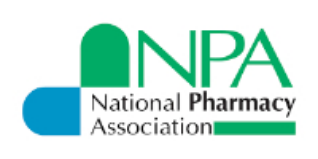-
NHS
-
Oldham ServicesMenu
-
Shop
-
Help & Advice
-
Menu

Acne is a common skin problem that often leads to both emotional and physical discomfort. Beyond the immediate issue of breakouts, one of the most challenging aspects for individuals facing acne is the risk of acne scars. This potential long-term consequence adds to the frustration of managing the condition.
Acne scars are often the result of a complex interplay between biological factors and external influences. This complex relationship can lead to scarring when not managed properly.
Acne lesions, particularly cystic acne that develops deep within the skin, can cause significant inflammation. This inflammation damages the skin’s tissue, leading to scars.
The body’s natural healing process can sometimes overcompensate in repairing acne wounds, resulting in too much tissue (leading to raised scars) or too little tissue (resulting in depressed scars).
Touching acne lesions by picking or squeezing can aggravate inflammation and hinder natural healing, significantly increasing the risk of scarring.
Genetic predisposition significantly affects how someone’s skin heals and can affect the likelihood and severity of scarring. A history of acne scarring in the family may increase the risk, indicating a genetic component to scarring susceptibility.
Delayed or inappropriate acne treatment can allow sores to get worse or persist for extended periods, heightening the chance of scars forming.
Hormonal changes, like those occurring during puberty, pregnancy, or as a result of certain health conditions, can intensify acne outbreaks, which in turn can lead to scarring.
Atrophic scars create depressions or indentations in the skin. They occur due to a loss of skin tissue and are the most common type of acne scars:
Hypertrophic scars are characterised by excess tissue that forms over the skin as it heals. Unlike atrophic scars, hypertrophic scars are raised above the skin’s surface.
To prevent acne scars, it’s important to tackle acne early on, considering both what happens inside your body and what your skin health goes through on the outside.
Refrain from squeezing, picking, or popping pimples to prevent additional skin damage and scarring. Adopt a gentle skincare routine, as harsh scrubbing can irritate the skin and exacerbate acne and scarring.
Keeping the skin hydrated with non-comedogenic moisturisers can help maintain its barrier function and promote healing. UV exposure can worsen the appearance of acne scars, so using a broad-spectrum sunscreen daily helps protect the skin and prevent scars from becoming darker and more pronounced.
Your diet can cause acne. A diet low in sugar and dairy has been suggested to benefit some people with acne, although the evidence is not definitive. A healthy diet of fruits, vegetables, and omega-3 fatty acids can support overall skin health.
High levels of stress can intensify acne. Stress reduction techniques such as mindfulness, exercise, or talking to a professional can help manage stress levels and potentially reduce acne outbreaks.
Starting acne treatment as soon as acne develops can prevent severe spots that are more likely to scar. Using products formulated with ingredients like benzoyl peroxide and salicylic acid can help control the formation of new acne spots.
For persistent or severe acne, seeking advice from a GP or pharmacist can lead to prescription treatments that may be more effective in preventing scarring. Oral medications like lymecycline and doxycycline can be prescribed to stop bacteria from forming. In some cases, professional treatments like chemical peels, microdermabrasion, or laser therapy can treat acne and reduce the risk of scarring by promoting healthy skin regeneration.
Retinoids help speed up cell regeneration, improve skin texture, and reduce the appearance of acne scars, while Alpha Hydroxy Acids (AHAs) help exfoliate the skin, removing dead skin cells from the top layer of the skin and promoting new, scar-less skin growth. Hydroquinone can sometimes be used for hyperpigmentation as it helps lighten dark scars.
When over-the-counter options and lifestyle adjustments are insufficient, prescription medications offer a more potent solution for managing acne scars. Typically recommended by a GP or pharmacist, these treatments target various aspects of scar formation and healing.
These compounds increase cell turnover, promote collagen production, and can significantly improve the texture and appearance of acne scars over time. Tretinoin and adapalene (higher strengths) are commonly prescribed for their effectiveness in scar treatment.
Topical corticosteroids like Betnovate and Hydrocortisone can help reduce inflammation, itchiness, and size for raised scars, like hypertrophic scars. Available as creams, gels, or injections, depending on the scar’s characteristics and location.
Acne scars are quite common among individuals with moderate to severe acne. The risk of developing scars typically increases with the severity of acne and is influenced by factors such as genetics and how the acne was treated.
The duration for acne scars to fade can vary widely depending on their type and severity. Some mild scars may go away within a few months, while more severe scarring can take years to improve and may not disappear entirely without treatment. Continuous sun protection and following a skincare routine tailored to promote healing can help accelerate the process.
While some acne scars can be significantly reduced or even eliminated with proper treatment, others may not be removed entirely. The possibility of completely getting rid of acne scars depends on the scar type, depth, and the treatment methods used. Procedures like laser therapy, microneedling, and surgical options can offer substantial improvements for many.
Yes, acne scars may fade over time as the skin undergoes its natural regeneration process. However, this fading is often gradual and can be uneven. Some types of scars, such as shallow atrophic scars, are more likely to improve with time than deeper scars like ice-pick or keloid scars.
Complete a consultation with Click2Pharmacy to access effective acne scar treatments from our dedicated online acne clinic. With Click2Pharmacy, you can access effective treatment from UK registered pharmacists without needing to leave your home, making it simpler to manage your acne scars. Our service is designed for convenience, delivering what you need right to your doorstep.

